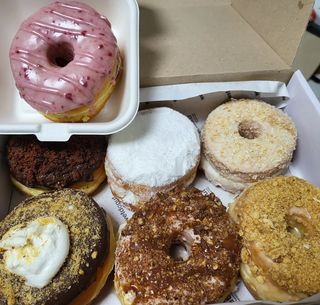Coffee is one of the world’s most beloved beverages, enjoyed by millions each day in countless variations. Whether it’s a morning ritual, an afternoon pick-me-up, or a social experience with friends, coffee has earned its place as a global favorite. But despite its popularity, there are still a lot of misconceptions about coffee floating around. These myths can cloud our understanding of this beloved drink and its true impact on our health and well-being.
In this article, we’ll dive into some of the most common coffee myths, debunk them with facts, and help you better understand what you should really know about your daily cup of joe.
1. Myth: Coffee Dehydrates You
One of the most persistent myths about coffee is that it dehydrates your body because of its caffeine content. The idea is that caffeine, being a diuretic, makes you urinate more and thus causes dehydration.
The Truth: While caffeine does have mild diuretic effects, it’s not significant enough to cause dehydration if you’re a regular coffee drinker. Studies have shown that the water content in coffee actually contributes to hydration. In fact, the fluid you consume from a cup of coffee compensates for the small amount of water lost through urination. So, unless you’re drinking excessive amounts of coffee (more than 5-6 cups a day), it’s not going to dehydrate you.
Read More: Why Your Coffee Isn’t Tasting Right (And How to Fix It)
2. Myth: Coffee Stunts Your Growth
This myth likely comes from the belief that caffeine can have negative effects on children’s health, but many adults still believe it. The idea is that coffee can stunt your growth, especially for young people, due to its caffeine content.
The Truth: There’s no scientific evidence supporting the claim that coffee stunts growth. Caffeine, in moderation, doesn’t affect your height or cause harm to your bones. However, excessive caffeine consumption can lead to problems like sleep disturbances or increased anxiety, which could affect a child’s overall health, but it won’t impact their growth.
3. Myth: Coffee Causes Insomnia and Disrupts Sleep
Many people believe that drinking coffee, particularly in the afternoon or evening, will prevent them from getting a good night’s sleep. While this can be true in some cases, it’s not a universal rule.
The Truth: Caffeine can certainly disrupt sleep if consumed too close to bedtime, especially if you’re sensitive to it. However, the impact varies from person to person. For some, a cup of coffee in the afternoon may have no effect on sleep, while for others, it can keep them awake. The key is to understand your own body’s tolerance to caffeine and avoid consuming it at least 6 hours before bedtime to minimize its effect on sleep quality.
4. Myth: Dark Roast Coffee Has More Caffeine Than Light Roast
When it comes to choosing between light and dark roasts, many people believe that dark roast coffee contains more caffeine. The logic behind this is often rooted in the belief that the darker roasting process increases the caffeine content.
The Truth: The truth is the opposite. Light roast coffee actually contains slightly more caffeine than dark roast coffee. The reason for this is that caffeine is lost during the roasting process. While the difference in caffeine content is minimal, light roasts retain more caffeine because they are roasted at lower temperatures for a shorter amount of time. So, if you’re looking for an extra energy boost, a light roast might be the way to go!
5. Myth: Coffee Is Bad for Your Health
Some people still believe that coffee is harmful to health, often associating it with issues like heart disease or increased cholesterol levels.
The Truth: In recent years, many studies have debunked this myth. In fact, moderate coffee consumption is associated with numerous health benefits. Research suggests that coffee can improve brain function, help protect against certain diseases like Parkinson’s and Alzheimer’s, and even lower the risk of certain types of cancer, including liver and colorectal cancer. Of course, moderation is key. Drinking excessive amounts of coffee (more than 4-5 cups a day) may lead to problems like increased heart rate, anxiety, and digestive issues, but in moderation, coffee can be a beneficial part of a healthy lifestyle.
6. Myth: You Should Avoid Coffee If You Have Anxiety
Given that caffeine is a stimulant, many believe it exacerbates anxiety and should be avoided by people who suffer from anxiety disorders.
The Truth: While caffeine can indeed increase feelings of anxiety in some individuals, especially in high doses, it doesn’t affect everyone the same way. For some people, moderate coffee consumption has no impact on anxiety and can even provide a boost in focus and mood. If you have anxiety, it’s important to understand your body’s tolerance to caffeine. If you find that coffee worsens your symptoms, you might want to limit your intake or opt for decaffeinated options.
7. Myth: Expensive Coffee Is Always Better Than Cheap Coffee
Many people believe that the more expensive coffee beans, equipment, or blends are always superior in taste and quality.
The Truth: While it’s true that high-quality beans tend to produce better-tasting coffee, the price doesn’t always guarantee a better experience. Factors like freshness, the brewing method, and the grind size can have just as much (if not more) impact on the flavor of your coffee. If you’re on a budget, there are plenty of affordable options out there that can deliver great coffee, especially if you buy from local roasters or carefully source your beans. Sometimes, the most expensive coffees may not match your personal taste preferences either.
More About: Top 5 Coffee Shops in Rhyl
8. Myth: Coffee Should Be Stored in the Freezer
It’s common advice to store coffee beans in the freezer to keep them fresh, especially for those who buy in bulk.
The Truth: Freezing coffee beans can actually harm their flavor. Coffee beans should be stored in an airtight container in a cool, dark place, but not in the freezer. Freezing causes condensation when you take the beans out, which can degrade the beans and make them lose their aroma. Coffee is best when it’s freshly roasted, so buying in smaller quantities and storing your beans properly will help you enjoy the best flavor possible.
Checkout: The Fascinating History of Coffee and How It Got So Popular
Conclusion: Knowledge Is Power
Now that we’ve debunked some of the most common coffee myths, you can enjoy your coffee with a little more confidence. Whether you’re drinking it for the energy boost, the taste, or the health benefits, coffee is a beverage that can enhance your life in many ways. Like any food or drink, it’s all about moderation and understanding how it works with your body.
So, the next time someone tells you that coffee stunts your growth or that dark roast has more caffeine, you can set the record straight. Drink up and enjoy your coffee the way it was meant to be enjoyed—without the myths!
Frequently Ask Questions (FAQ’s)
No, coffee does not dehydrate you. While caffeine has mild diuretic effects, the water content in coffee helps with hydration.
No, coffee does not stunt growth. There is no scientific evidence to support this claim, and caffeine does not affect height.
No, light roast coffee actually contains slightly more caffeine than dark roast due to the roasting process.
No, moderate coffee consumption is actually linked to various health benefits, including improved brain function and protection against some diseases.
No, freezing coffee beans can harm their flavor. Store them in an airtight container in a cool, dark place for best results.





